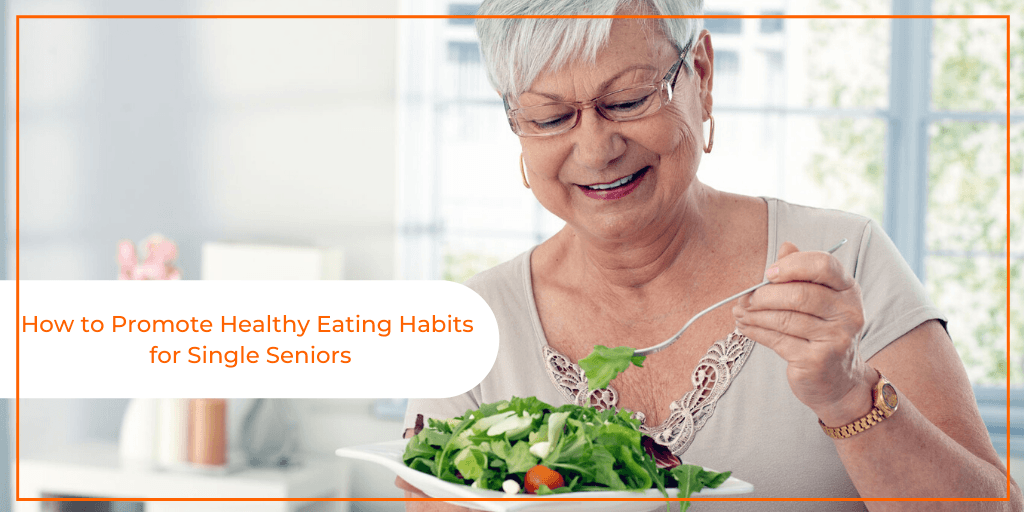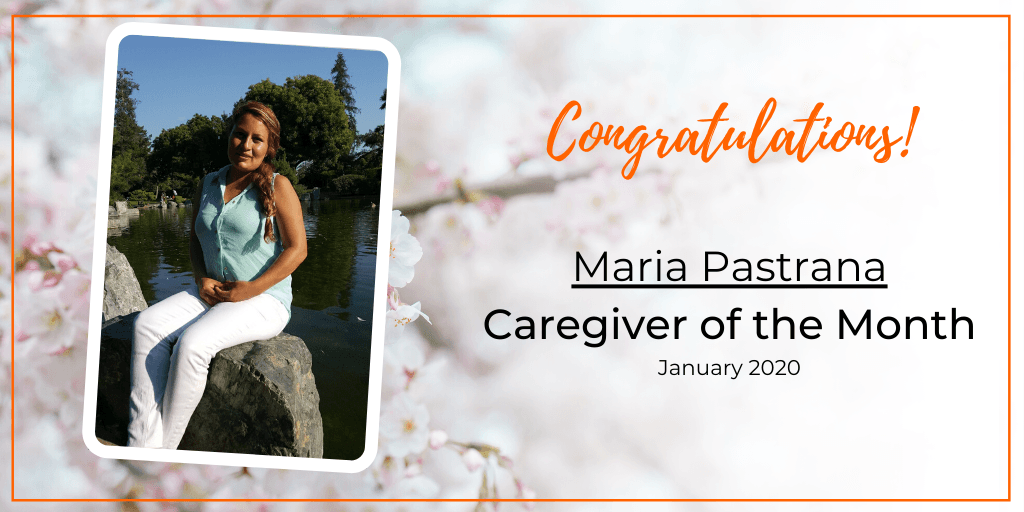
How to Promote Healthy Eating Habits for Single Seniors
Dee Bustos
Health And Wellness
Jan 17, 2020
8 min read
It’s no secret that eating healthy has positive physical and emotional impacts. For seniors, especially, eating a well-balanced diet can help combat some of the symptoms of a chronic illness or even battle side effects of medication. When combining healthy eating with a regular schedule of activity, you can live your life to the fullest as an aging diet.
However, it’s not always so easy to eat healthy, especially if you are a senior living alone. Whether you are a single senior or a caregiver trying to encourage a client to eat healthy, knowing strategies that can lead to a healthier lifestyle is essential.
Obstacles to Eating Healthy
There are several obstacles to eating healthy at any age, but as a senior living alone, you may experience even more challenges.
For instance, single seniors may:
- Lack knowledge about nutritional education and need assistance learning about the basics of a balanced diet
- Struggle to prepare healthy food due to a disability or chronic illness
- Choose unhealthy foods as a matter of convenience
- Lack the financial means to purchase healthy food options and may be drawn to processed foods that cost less
Helping a senior living alone develop a healthy lifestyle and healthy eating habits, though, doesn’t have to be a challenge. As a caregiver or loved one, you can help them to tackle all of these obstacles and even myths to healthy eating.
Navigating the Obstacles of Healthy Eating
To encourage an aging loved one to eat healthy, begin by assessing the situation. Seniors often choose not to eat healthy or lack the appetite due to side effects of medication. For example, if you are not hungry, but just want a snack, the natural instinct is to grab some chips or processed food to quench mild hunger or gain a burst of energy. In addition, dentures that are not properly fitted can impact what types of food a senior chooses to eat.
Begin by discussing health problems that may be impacting a senior’s eating habits. Encourage them to discuss these challenges with a physician. Also, talk with your senior about food options. If he or she loves fresh fruits and vegetables or certain types of meats, explore ways to prepare food without fatty components.
Stock the Fridge
Once you’ve determined the types of food a senior prefers to eat, stock the fridge. Make it easy for a senior living alone to access healthy food options by chopping up fresh fruits and vegetables and putting them in containers or even baggies so they are easy to access. High-protein foods are also recommended. If your loved one is able to eat snacks, such as nuts rich with protein, make these available.
You can also meal prep with your senior client or aging parent to ensure that healthy food options are available. Spend one or two days a week making meals that are ready to go and just need to be heated up. For example, steam broccoli, grill or bake chicken and prepare some rice to package in a container for a ready-made meal.
Opt for Healthy Meal Programs
You can also enhance your senior’s diet by taking advantage of meal preparation companies, such as CI Meal Prep Services. Offering hand-crafted healthy meals with just the right portions and a balance of protein, carbohydrates and healthy fats, CI Meal Prep Services can whip up meals for seniors living alone and deliver them to their front door.
Meal prep services add convenience to a senior’s life and make it easy to eat healthy when you are struggling to prepare healthy dishes alone. It is possible to eat healthy as an aging adult and when you have the resources and support you need, you can reap the benefits of a healthy lifestyle.
Finding the Support and Care You Need
A physical illness or disease can affect individuals at any stage of life and age. In some cases, the symptoms may be mild, but many disorders, can also be life threatening. The loneliness and stress that accompanies a medical condition can be even more stressful when struggling to eat a balanced diet and live a healthy lifestyle.
Support and care is essential at the onset of any type of discomfort for your aging parent or loved one. And, a team effort ensures that you – or a loved one – will navigate chronic conditions in comfort.
It’s important to learn as much about the symptoms and care needed to help support your loved ones. Tap into resources from local and national organizations to boost your knowledge of how the disorder affects everyone involved and to also identify coping skills. In addition, lean on caregivers, such as the qualified staff from Care Indeed, to help with daily living, while coordinating palliative care.
Life with any type of illness is challenging and learning how to accept the challenge is the first step in living life. While you may struggle with grief and loss when coping with the symptoms as a patient, caregiver or family member, the support you need is only a click away.
Care Indeed is committed to providing you the support and in-home caregivers who understand your challenges and daily struggles at work and home. Learn more about how to get the support you need today.
Top 5 Technology Benefits for Seniors

Meet Caregiver of the Month: Maria Pastrana




